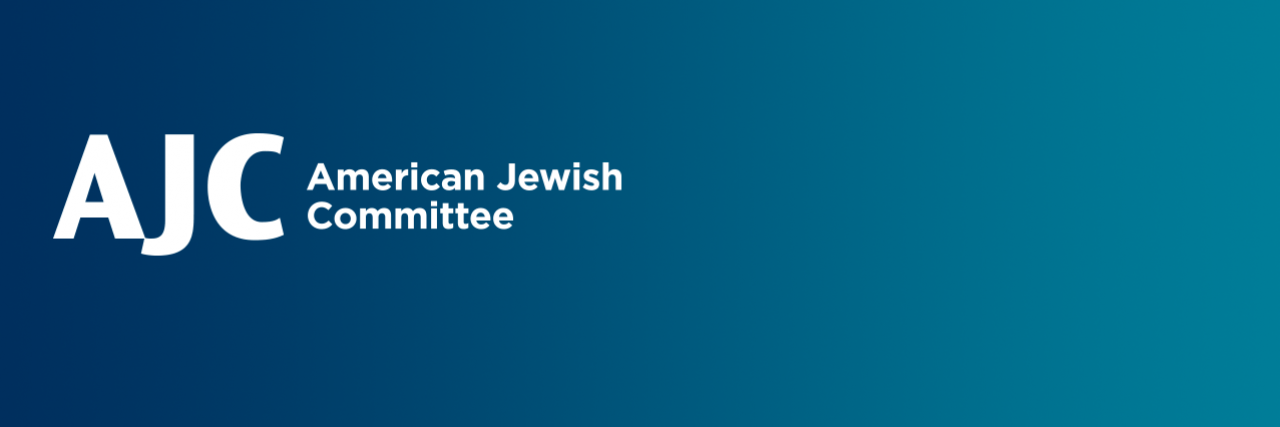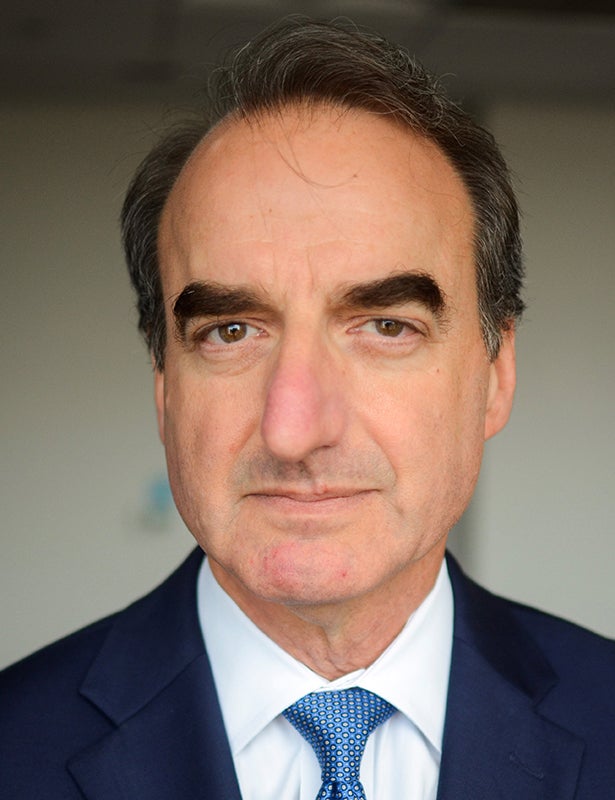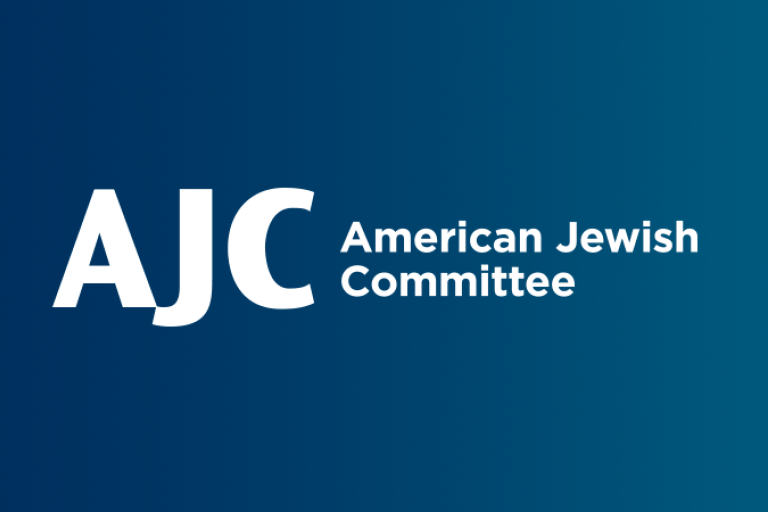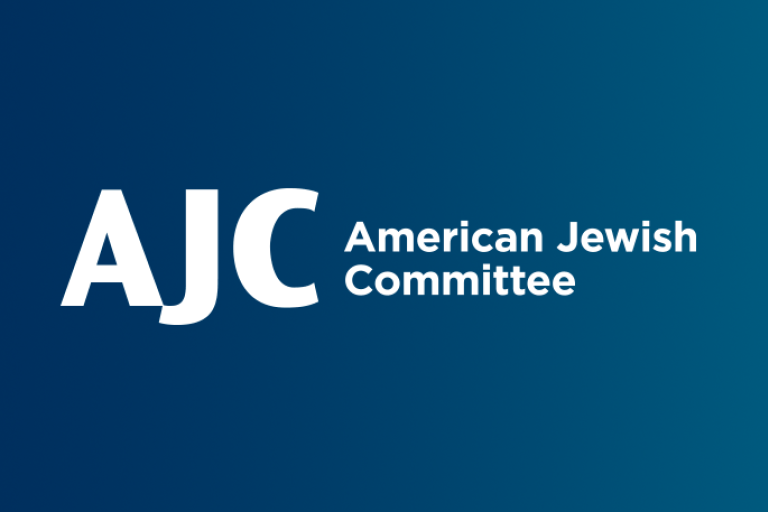March 15, 2021 — New York
United Nations Alliance of Civilizations (UNAOC)
Exploring Holistic Approaches to Combating Antisemitism
Session I: Setting the Scene: How far we’ve come in the fight against antisemitism?
What are the challenges?
Remarks by
Jason Isaacson
American Jewish Committee
March 15, 2021
High Representative Moratinos, distinguished fellow panelists, friends, and colleagues,
Thank you for offering the American Jewish Committee this opportunity to present our views on prospective approaches to combating antisemitism. And thank you, High Representative Moratinos, for your consistent sensitivity, throughout your distinguished career, to the issues we’re discussing this morning.
You’ve assembled a dauntingly impressive panel of experts to inform your deliberations on this insidious phenomenon. I will restrain myself from repeating at length what you will have heard countless times by the conclusion of this session.
You know that antisemitic incidents – including incidents of unspeakable violence – have occurred with increased regularity in recent years, particularly in Europe and the United States.
You know that a shockingly high percentage of Jews, as revealed in AJC’s own surveys and other sources, report having experienced antisemitism, and that many have altered what they wear, or been forced to avoid religious functions, because of the dangers to which they will be exposed.
And you know that the fight against antisemitism must be waged on many fronts: in the media, particularly social media; in the halls of government; in the academy; in religious settings and texts; in civil society institutions and interactions.
You also know, High Representative Moratinos, and we on this panel certainly know, that antisemitism, while described as “the oldest hatred,” is by no means the only one. Our commitment to combating antisemitism is, and must be, matched by our commitment to exposing, confronting, and countering bigotry of every form.
In the interest of time, I’d like to briefly offer three broad observations on the challenges we face and approaches we can take, drawn from proposals AJC has put forward in the United States and abroad.
First, to combat antisemitism, those in positions of authority – whether in the classroom, or in law enforcement, or in a sports club – must be able to identify it. They must be able to see the danger in a willfully, or even casually, hateful remark. And in this era, when antisemitism is too often camouflaged in rhetoric that derides or negates the legitimacy of Israel, they must be able to separate criticism, which is fair game, from prejudice, which is unacceptable.
The Working Definition of Antisemitism, as adopted by the International Holocaust Remembrance Alliance in 2016, performs that function precisely. We were pleased to see this carefully crafted and non-legally binding instrument fully endorsed by this morning’s fellow-panelist, Dr. Ahmed Shaheed, the UN Special Rapporteur for Freedom of Religion or Belief, and by dozens of national governments – including in recent weeks by the Biden administration – as well as by transnational bodies, local governments, and a variety of other institutions.
We recall Secretary-General Guterres saying that antisemitism often expresses itself “in attempts to delegitimize the right of Israel to exist, including calls for its destruction, using the pretext of the situation in the Middle East to target Jews and Jewish symbols.” In that context, as we have discussed on several occasions, High Representative Moratinos, we are hopeful that all Member States of the United Nations will adopt the Working Definition in their own countries, for educational and training purposes. As you well know, misinterpretations of the Working Definition and its illustrative examples have been employed to deter its adoption in a number of venues; this is a challenge I urge all who speak on behalf of the United Nations to help us overcome. There is no need to revise or renegotiate the definition, which has been embraced by dozens of national governments and numerous other public and private entities.
Second, the fight against antisemitism requires credible, consistent leadership, and the commitment, discipline, and resources to formulate and implement a comprehensive strategy to carry it out. The fight cannot be waged without a leader and without a plan.
The Secretary-General, and you, High Representative Moratinos, along with Dr. Shaheed and the organizations you have assembled for today’s meeting have been devoted to raising international consciousness of the urgency of combating antisemitism. Collectively, we have inspired governments at every level, as well as other institutions, to take action: speaking out forcefully against incidents of antisemitism, passing legislation to protect religious institutions, appointing national coordinators, promulgating counter-radicalization programs in prisons, modifying school curricula on the Holocaust and Jewish heritage.
Our challenge now, in the face of a crowded public policy agenda made even more crowded by the devastation wrought by Covid-19, is to maintain priority attention to an issue that has long served as an index of civic health: combating antisemitism specifically, and, more broadly, celebrating inclusion and diversity and giving no ground to hate. Within the United Nations itself, we also are hopeful that your leadership, High Representative Moratinos, will bring about greater awareness at the staff level of the nature and danger of antisemitism – awareness that will be facilitated by the Working Definition.
Third and finally in this short list of challenges and opportunities, it is clear that while attention has been paid and action taken against antisemitism in multiple public and private venues, this age-old virus continues to thrive. It infects the Internet, college campuses and academic associations; we saw it on display at the World Conference Against Racism 20 years ago in Durban; we saw it on display in the assault on the U.S. Capitol just two and a half months ago; we saw it on display just last Friday in a UN Human Rights Council session when Iran invoked the infamously antisemitic, and later revoked, General Assembly Resolution 3379, the so-called “Zionism is racism” resolution, of 1975.
A definitive antidote is elusive. But multiple strategies do yield progress: modeling by figures of authority; education cleansed of religious and racial bias; the displacement of perverted religious principles by enlightened, authentic ones; the application of terms of service that prevent the abuse of open media to foment hate and violence; and the adoption of social structures – interfaith and interethnic coalitions, exchange programs, study groups, and myriad other forms and forums – that break down barriers to intergroup and intercultural contact and understanding. These all honor our common humanity. Our challenge, not unlike the overwhelming public health challenge of the last year, is to make these antidotes widely accessible to, and accepted by, our global fellow-citizens.
As you know, High Representative Moratinos, AJC continues to stand ready to work with you and your team as you raise awareness of, and seek remedies to, the scourge of antisemitism.
Thank you.



